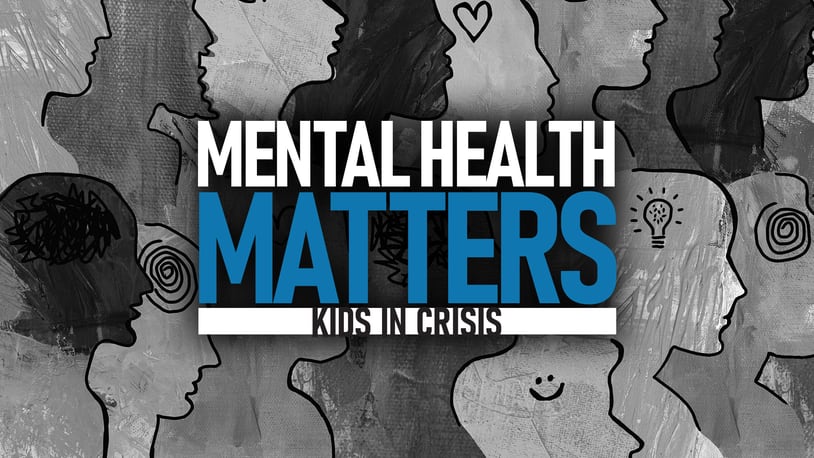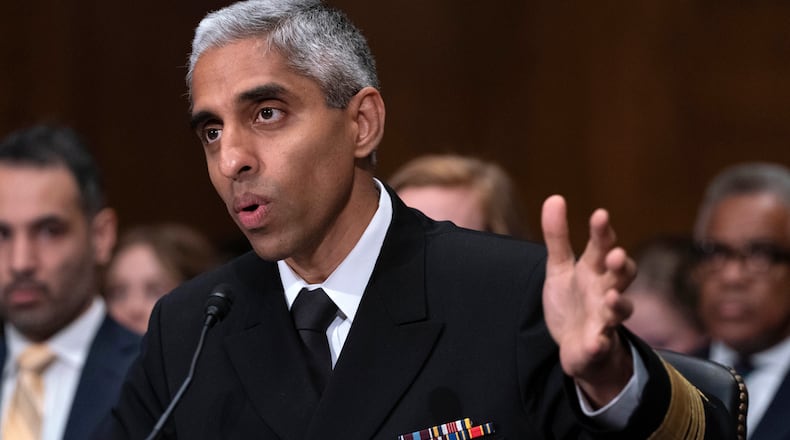School has barely been in session for a month, but some districts say so far it appears the ban is working.
Jefferson Twp. interim superintendent Rusty Clifford said the district’s cellphone ban has led to connection.
“I told my wife, I said, I had to go into the cafeteria the second day,” Clifford said. “And I told her I heard something that I hadn’t heard in over a decade. She goes, well, what was that? I said, kids talking.”
Jessica Stickel, a Kettering-Fairmont High School English and Hope Squad teacher, said the kids in Fairmont were constantly getting notifications before the phone ban was updated this year. Previously, kids in study hall, which had a relaxed requirement, were texting their friends in class, who couldn’t ignore their phones. Parents would text their kids and expect an instant response.
“Sometimes, families would send messages with upsetting news or continuations of arguments from the morning, and those could really throw off a student’s day,” she said.
It’s still too early to make any big proclamations about success, Stickel cautioned. Some kids have been struggling with not being able to listen to music between classes. Families who have schedule changes may be struggling to connect.
But she said the new policy is easier to enforce and the teachers and families are getting support from the building’s administration.
• MENTAL HEALTH MATTERS: More from this project
“Long term, I’m hopeful that kids will talk more, worry about social media less, and be more present with those around them,” Stickel said.
Carrie Hennessey, multi-tiered support systems coordinator for Kettering whose job involves overseeing mental health supports for Kettering kids, said the ban seems to be helping kids learn there is a time and a place to use their phones.
“We have learned at school it needs to be a safe place and a time for learning and so they need to be tucked away so students can focus on learning,” she said. “We have received some feedback from students saying it is nice not to worry about others taking videos or posting about them during class and that there has been less drama.”
‘Congress must act to make platforms safer’
U.S. Surgeon General Dr. Vivek Murthy renewed calls this year for social media to come with warning labels, similar to that of the labels on cigarettes, saying social media poses a threat to young people’s mental health.
“Social media can expose young people to harassment, abuse, exploitation and extreme content. Congress must act to make platforms safer and must require companies to share all data on the health effects of social media with the public,” said Murthy on X, formerly known as Twitter.
This month, 42 state attorneys general agreed.
In a letter dated Sept. 9 to Speaker of the House Mike Johnson, Senate Majority Leader Chuck Schumer, and Senate Minority Leader Mitch McConnell, the attorneys general asked them to follow Murthy’s recommendation as a surgeon general warning would require congressional action.
“As Surgeon General Murthy recognized, this generational harm demands immediate action,” the letter says.
“By mandating a surgeon general’s warning on algorithm-driven social media platforms, Congress can help abate this growing crisis and protect future generations of Americans.”
Ohio’s attorney general, Dave Yost, was not among the attorneys general who signed the letter, though it came with the National Association of Attorneys General letterhead, which included Yost’s role of immediate past president.
Yost’s office did not respond to a request for comment about the letter.
MENTAL HEALTH MATTERS
A project from the Dayton Daily News

Mental health issues affect all segments of our community, in slightly different ways. Our in-depth reporting focus this year is centered on children through our Mental Health Matters: Kids in Crisis series. With this project, we'll address the larger community in crisis by investigating how mental health issues impact higher education, the workforce and seniors.
- » Our investigation shows how social media is affecting youth mental health
- » How social media impacts your brain
- » Schools say cell phone bans working as attorneys general seek congressional action to address youth social media use
- » Letter from the editor: Mental health is a community challenge we must solve together
- » Sign up for our Mental Health Matters newsletter
- » Full project coverage



